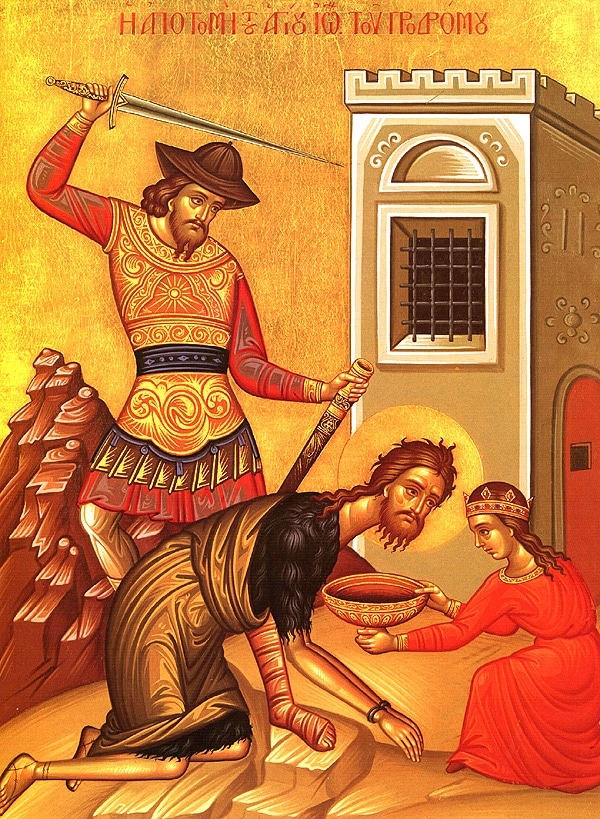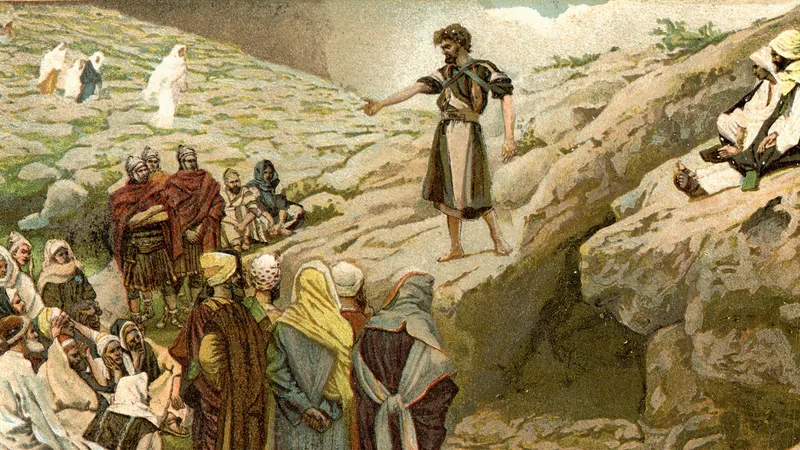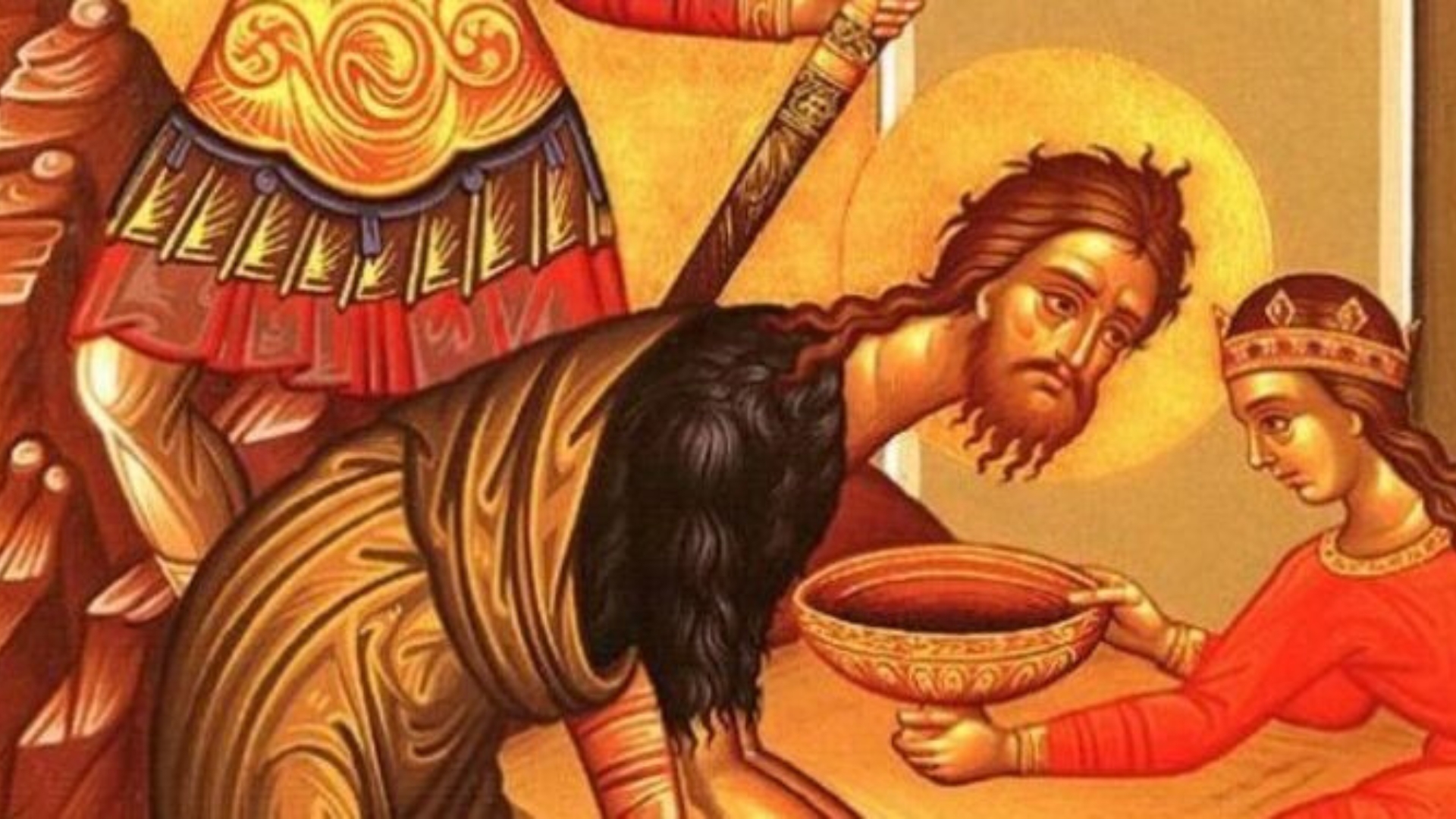John the Baptist, a prophet in the Old Testament, was the Forerunner of Christ, who lived in the desert of Judea, proclaiming the coming of the Messiah and calling the people to repentance. The Beheading of St John the Baptist is commemorated on August 29 by the Orthodox Church.
St John the Baptist was both comforting and reprimanding, like that of the older prophets, and he scolded sin and every kind of injustice. He did not hesitate to reprimand the Pharisees, both for their hypocrisy and for moral wrongdoings, as well as King Herod Antipas himself, who had an unlawful relationship with his brother’s wife, Herodias.
Due to this particular attitude, Saint John the Baptist was first imprisoned and then beheaded, as Salomis, daughter of Herodias, had demanded. Salomis charmed the king with her dancing at his birthday party and he promised to give her anything she desired, up to half of his kingdom.
However, the wickedness and hatred of her mother prompted her, instead of another valuable gift, to ask for the head of St John the Baptist. Even though he was appalled by this request, Herod reluctantly agreed to execute the decision, according to the wish expressed by the mother and daughter.

John’s Precious Head, offered to Salome on a platter, was buried by the soldiers in the prison. He was believed to be buried in Samaria where he was honoured in the 4th century, but the tomb was desecrated by Julian the Apostate.
About John the Baptist
St. John was the son of the Prophet Zacharias and Elizabeth, who was a kinswoman of the Virgin Mary. St. John is known as the “Forerunner” and “Baptist.” He is known as the Forerunner because he preceded Christ and taught repentance, which prepared men for Jesus’ teaching and His ministry. He even recognised Christ as the Messiah as early as when they were both still in their mothers’ wombs. According to Holy Tradition, the Virgin Mary went to visit her cousin Elizabeth and when they embraced John leapt in his mother’s womb, which is considered his first acknowledgment of Christ as Messiah.
After his birth, St. John’s father Zacharias was murdered in the temple. He and his mother fled to the desert and he was raised there. Thus he lived as an ascetic from the earliest part of his life. He ate plants and roots and wore rough clothing. When he grew, he baptised people in the Jordan, teaching repentance, but also saying that someone greater would come after him and baptise with the Holy Spirit.

St. John always spoke the Truth and because Herod did not appreciate his criticism, he was imprisoned. Later he was beheaded, as the result of a promise Herod gave to his step-daughter to give her anything she asked. The daughter was convinced by her mother to ask for John’s head on a platter.
The feast of St. John’s Beheading is a strict fast day in recognition of the way in which he died, but it is also a joyous feast day because John’s life was such a luminous example for monastics, martyrs and all Christians to follow him.
